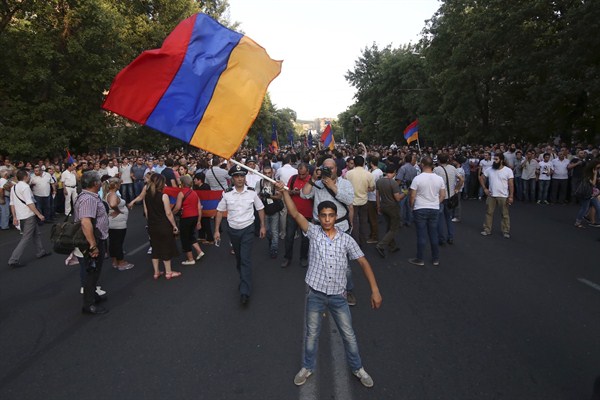Electric Yerevan, the name given to protests in Armenia that started last month, has mostly ended. But the grievances that catapulted anger over a utility rate hike into weeks of protests in the capital, Yerevan, and across the country remain all too relevant. While much international commentary on the protests has examined the geopolitical significance and repercussions of the unrest, both the Armenian government and the thousands of demonstrators themselves have insisted the protests focused on issues a little closer to home. Rather than a repudiation of Russia or a nod to the West, the protests sought to highlight the failings of the Armenian government and, more essentially, the hold that corruption has over broad swaths of governance and everyday life.
One of the most prominent themes to come out of the Electric Yerevan protests was about what it was not: neither a local version of Ukraine’s 2013-2014 “Euromaidan” protests that toppled ex-President Viktor Yanukovich, nor a colored revolution. Nonetheless, the issue of Russian influence has been an inescapable aspect of Armenia’s political reality. Armenia is not merely a Russian geostrategic client, but has so firmly integrated within the Russian system that its actual state of independence is an open question.
Yet in spite of Moscow’s comprehensive sway over Armenia, protesters and their backers rarely broached the question of Russian domination—at least not openly. This is largely a consequence of Armenia’s broad-spectrum economic and geopolitical dependence on Russia, but also because of a genuine sense among many protesters that the crux of the Yerevan protests was opposition to an Armenian elite that they say has failed them.

